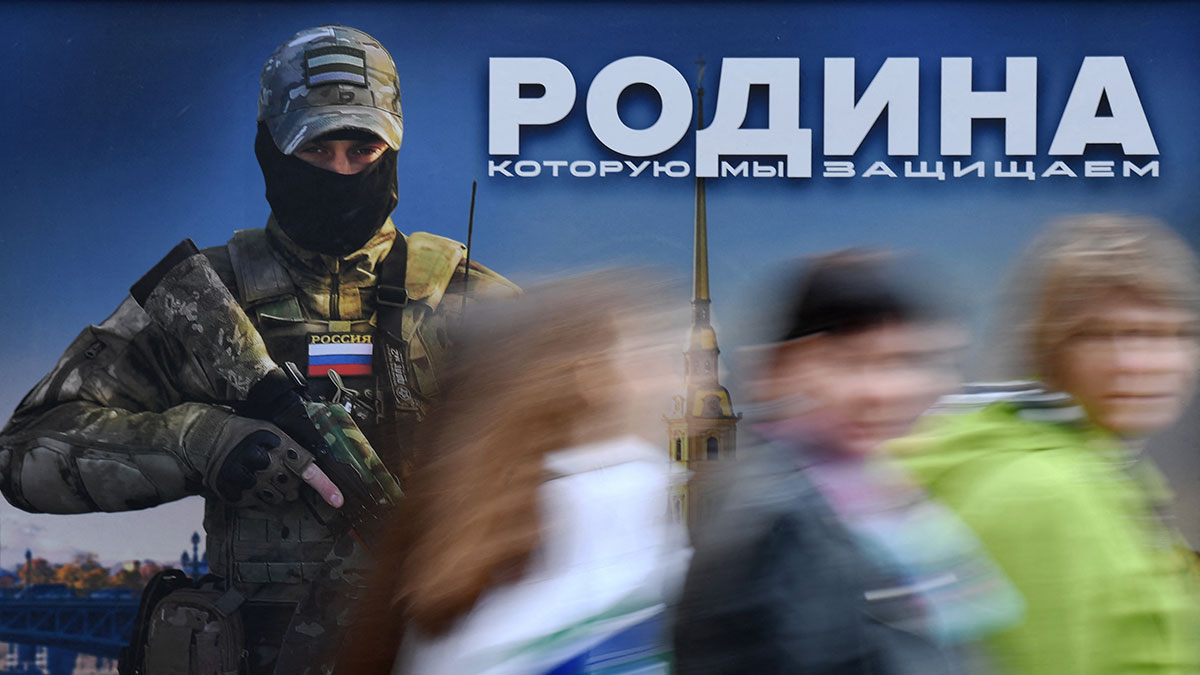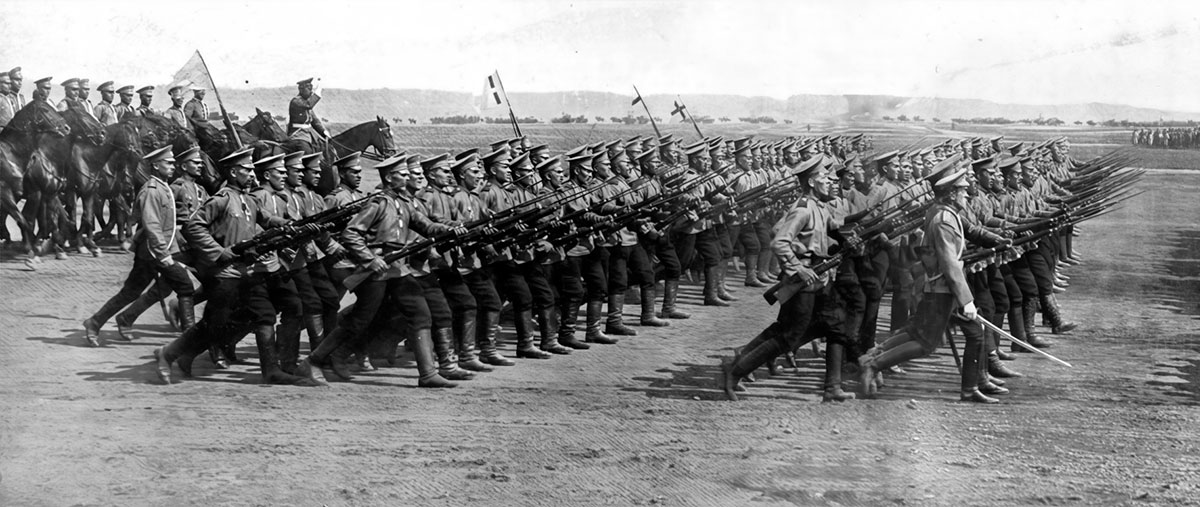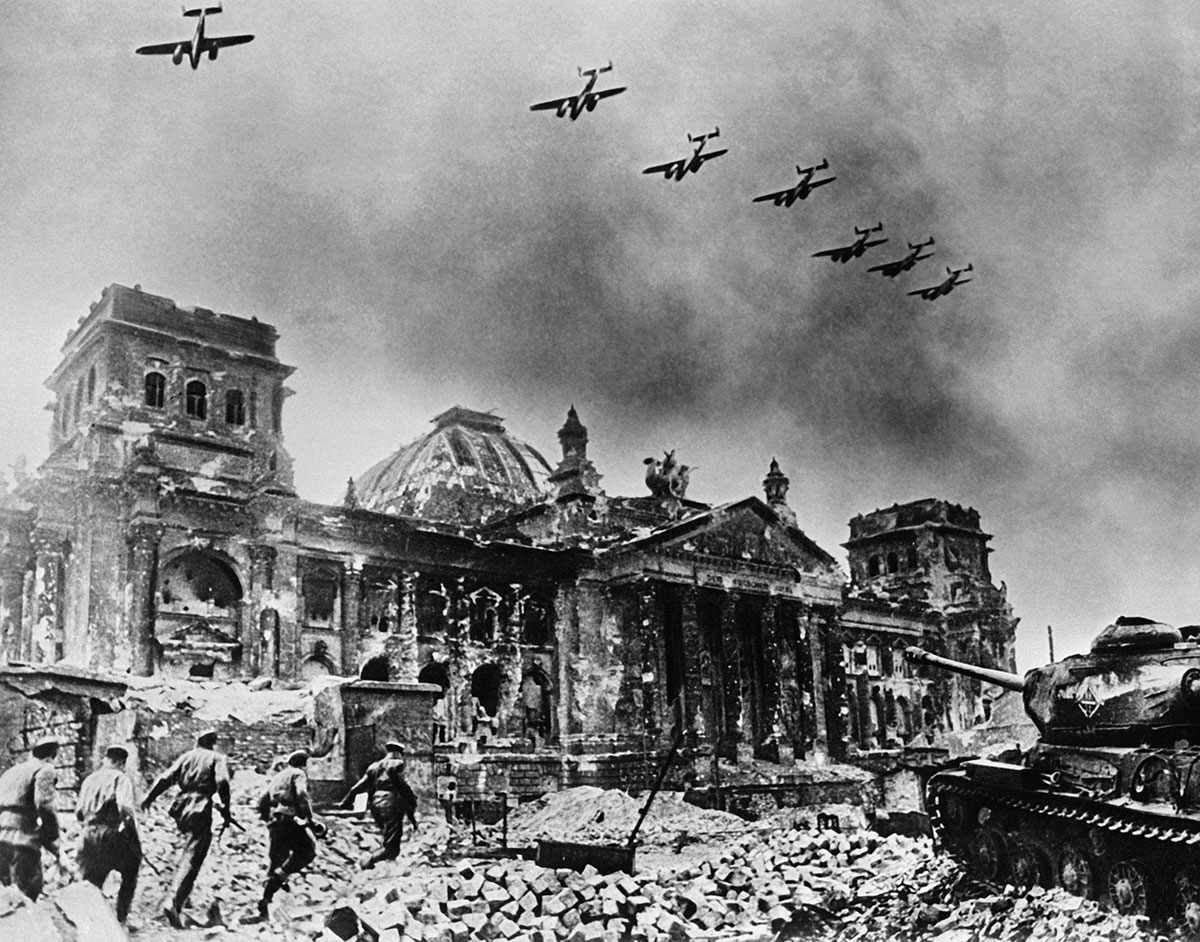Rob Campbell
Jul 16, 2025
I am writing this after reading an article by Dmitry Trenin because I think that some people may benefit from a look at the ‘big picture’ which probably doesn’t receive sufficient attention in the Update. Following the speculation of some commentators, many people are asking: are we in a ‘cold war’ or a ‘third world war’ or neither?
Dmitry Trenin (pictured) believes that the Third World War is with us already but it is very different from the First and Second. Trenin is a member of Russia’s Foreign and Defence Policy Council and a former Colonel in Russia’s intelligence services. Until recently, he was very much pro-Western. He believes that this East/South v West conflict is the product of a changing balance of power in the world, which is not in dispute.
Anyway, some say we have entered a new ‘cold war’ which people my age know something about. The cold war, which greeted me at birth, involved ideological opposition between Russia/China and the West, a nuclear arms race1, lots of nasty rhetoric and some hot wars (e.g. Korea and Vietnam). The US also financed and equipped different groups to fight for US interests in the Middle East, Africa and Latin America. I am summarising.
But there was still dialogue between Russia and the West and there was friendly exchanges between the two in sports competitions alongside a friendly cultural exchange (e.g. cinema/television).2 The cold war, then, was very different from hot wars where there is direct conflict between the two sides who would each seek to demonise and dehumanise the enemy.
The current situation has similarities with past cold and hot wars but has introduced new forms of warfare which featured only marginally in these. It is a hybrid war which someone will provide a name for at some point. It may be useful to look at it in detail.
It may not appear obvious to everyone but this is very much a World War between the decaying Western Hegemon (the US), its satellites (e.g. Europe) and the Rest of the World. It also involves proxy countries (e.g. Ukraine and Israel) which are engaged in proxy wars on behalf of the Hegemon This is not a full on hot war, because direct combat between the major antagonists is limited - though it is clear that Western troops are engaged on the front lines in Ukraine against Russian forces while Western forces have assisted Israel in the Middle East.
In both Europe and the Middle East, the West is employing terrorist methods and regime change tactics, which have not been prominent in past wars - as far as I know3. Assassinations have been used in Ukraine, Gaza, Lebanon and Iran and innovative means, such as exploding pagers, have been employed.
We must not forget that until relatively recently wars were fought between armies while civilians were not generally involved. The concept of ‘total war’ was introduced during World War Two and civilian casualties became acceptable. Perhaps we are now seeing is an extension of this - since Israel and Ukraine are actually targeting civilians - and this is accepted by their Western backers.
Drones 4 can now attack the length and breadth of any country rendering many important targets vulnerable - including strategic nuclear bombers in Russia5 on June 1st and Iran’s air defences on June 13th. Indeed, it seems that no targets are now off limits and we have seen nuclear facilities and power plants attacked along with the Nord Stream pipelines. Propaganda has also featured prominently in these conflicts. And just as in full on hot wars, the demonisation of the enemy has far surpassed anything that Dr. Goebbels could conjure.
Russia, its history and its culture have been erased just as much as Trotsky was by Stalin6 - and of course the West would very much like to give Russia the ‘Icepick’ treatment.7 Just as in Woke morality, Russia cannot be forgiven - though some sensible European voices have called for a reproachment. Napoleon wanted to convert Russia politically; Hitler wanted to enslave it, while the West wants to break it up into small defenceless and manageable bits whose resources can be exploited with very little risk. Finally, sanctions and tariffs are an important part of the economic war being fought. So forget the idea that the West is engaged in some sort of moral, libertarian campaign.
For these reasons, this current conflict is very different from previous World Wars.
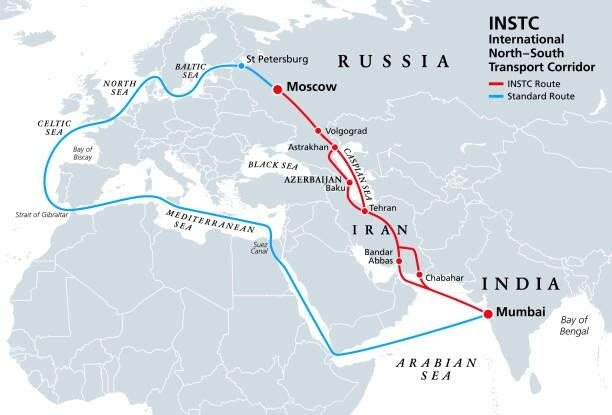
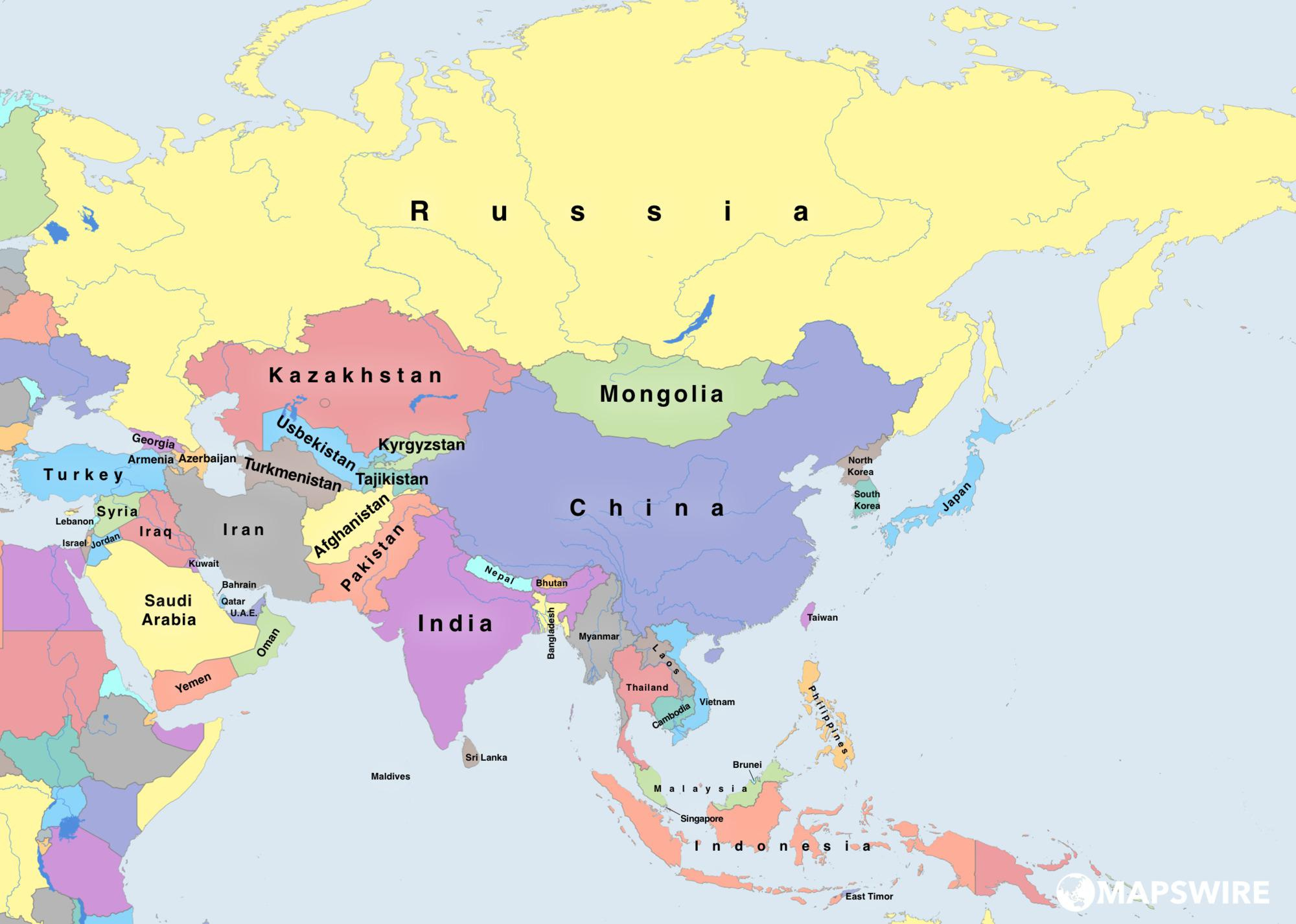
It will be obvious from one look at the above maps that the West’s main opponents in this area are Russia, China and Iran - though India could also be an opponent one day soon. It will also be obvious that the red trading route is much more efficient and cost effective than the blue (it is also sanctions free). It may also be clear that Western efforts to disrupt this arrangement will involve attacks on Russia, China and Iran while attempting to win over Azerbaijan and its neighbour Armenia. Efforts are already underway in the latter two countries along with Moldova to cause friction between them and Russia. Previously, such efforts have also failed in Georgia which is still not secure from regime change efforts.
I think it is important to know about such things in order to understand the war, which is more than a cold war and is being fought between the decaying Uni-Polar World Order (the Hegemon) and the emerging Multi-Polar World Order.
The US Hegemon has ruled the world since 1945 relying on an appeal to Universalism and exceptionalism in which its own values are considered to be superior to those of the non-Western World. The collapse of the Soviet Union and the ‘end of history’8 many Westerners assumed it heralded, reinforced the idea that Liberalism should become Universal. By various means, the West has attempted to impose these values on the rest of the World. But there has been resistance within the West itself and in the ‘jungle’9 outside.
Part of this resistance has joined the BRICS movement which promotes particularism rather than Universalism and places emphasis on National Sovereignty which many countries have lost. Liberalism, which has recently become authoritarian, is simply one way of looking at the world and acting within it. It is not the only way. However, liberalism, in its modern form, does not resonate with or appeal to traditionalist societies, of which most of the world is made - including Russia and China.
The fact that the West is so uncompromising, in line with its Woke morality, is disturbing because it eschews negotiation. Therefore, the West must fight Russia until it is defeated or until it imposes defeat on the West. This is the current situation, as I understand it.
To make matters even more complicated, as Trenin points out, the Deep State is asserting itself once more over a US President. Since the Deep State rules regardless of which President thinks he is in power, the World War which has started in recent years will continue over many more, according to Trenin. The Ukraine War will finish at some point though I have no idea when, but the West will ensure that more conflicts will break out somewhere or other. The West has a choice between being an equal player in the emerging Multi-Polar World Order or continuing this fight. I think it will choose the latter, for now. Trenin believes that a nuclear conflict between Russia and NATO countries is becoming ‘increasingly likely’.
In the light of all this, Trenin urges Russia to ensure that its main opponents - i.e. Britain, France and Germany, are made aware that they are vulnerable through actions rather than words. He does not rule out the limited use of nuclear weapons. Thus he appears to be suggesting that NATO countries could be targeted.
I hope this brief summary will be useful to some in understanding the current conflict - whether it is a cold war, a new type of World War - or something else.
Best wishes - Rob
1
And nightmares about nuclear bombs in the distance.
2
The American ‘Man from Uncle’ of 1964-8 featured cooperation between American Napoleon Solo and the Russian Illya Kuryakin who received the most fan mail. Well, David McCallum received it on his behalf.
3
I am sure that someone will correct me on that.
4
The machine gun was the gamechanger in WW1; the tank in WW2 and the drone in WW3.
5
The so called ‘Spider Web’ attacks on 1st June.
6
Stalin had Trotsky’s image ‘air brushed’ from photographs.
7
Trotsky was killed on Stalin’s order by an assassin who used an ‘ice pick’.
8
Political scientist, Francis Fukuyama concluded that the fall of the Soviet Union demonstrated that Capitalism had triumphed as a socio-economic-political model and that no further development was necessary or desirable. The end of history had been achieved - or so he naively believed.
9
Josep Borrell described everything outside of Europe as a jungle.
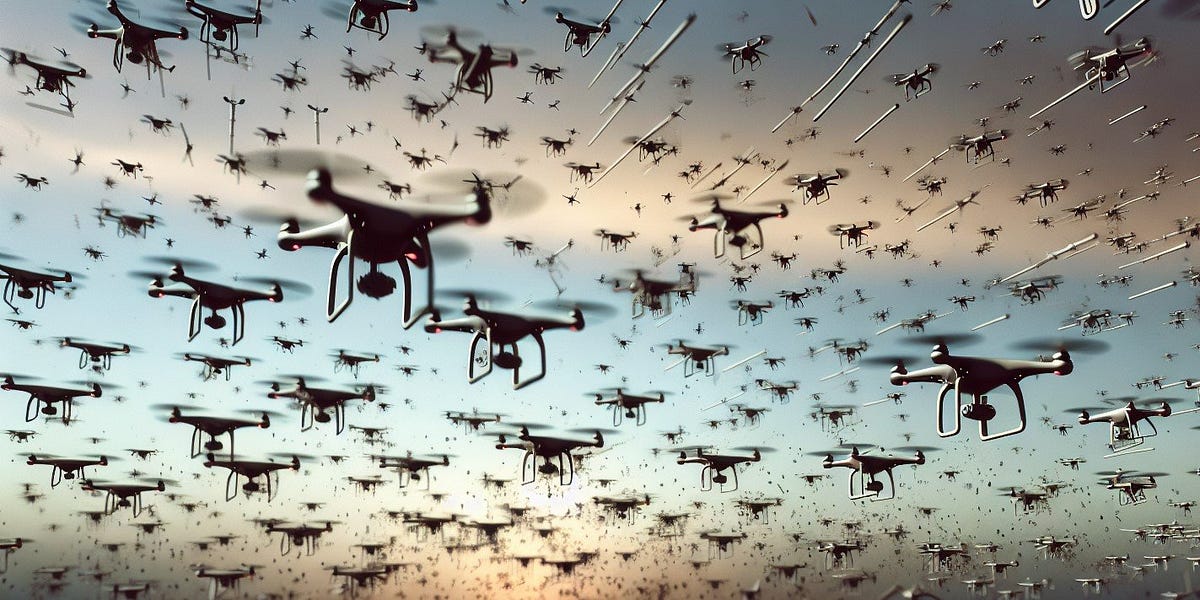
Jul 16, 2025
I am writing this after reading an article by Dmitry Trenin because I think that some people may benefit from a look at the ‘big picture’ which probably doesn’t receive sufficient attention in the Update. Following the speculation of some commentators, many people are asking: are we in a ‘cold war’ or a ‘third world war’ or neither?
Dmitry Trenin (pictured) believes that the Third World War is with us already but it is very different from the First and Second. Trenin is a member of Russia’s Foreign and Defence Policy Council and a former Colonel in Russia’s intelligence services. Until recently, he was very much pro-Western. He believes that this East/South v West conflict is the product of a changing balance of power in the world, which is not in dispute.
Anyway, some say we have entered a new ‘cold war’ which people my age know something about. The cold war, which greeted me at birth, involved ideological opposition between Russia/China and the West, a nuclear arms race1, lots of nasty rhetoric and some hot wars (e.g. Korea and Vietnam). The US also financed and equipped different groups to fight for US interests in the Middle East, Africa and Latin America. I am summarising.
But there was still dialogue between Russia and the West and there was friendly exchanges between the two in sports competitions alongside a friendly cultural exchange (e.g. cinema/television).2 The cold war, then, was very different from hot wars where there is direct conflict between the two sides who would each seek to demonise and dehumanise the enemy.
The current situation has similarities with past cold and hot wars but has introduced new forms of warfare which featured only marginally in these. It is a hybrid war which someone will provide a name for at some point. It may be useful to look at it in detail.
It may not appear obvious to everyone but this is very much a World War between the decaying Western Hegemon (the US), its satellites (e.g. Europe) and the Rest of the World. It also involves proxy countries (e.g. Ukraine and Israel) which are engaged in proxy wars on behalf of the Hegemon This is not a full on hot war, because direct combat between the major antagonists is limited - though it is clear that Western troops are engaged on the front lines in Ukraine against Russian forces while Western forces have assisted Israel in the Middle East.
In both Europe and the Middle East, the West is employing terrorist methods and regime change tactics, which have not been prominent in past wars - as far as I know3. Assassinations have been used in Ukraine, Gaza, Lebanon and Iran and innovative means, such as exploding pagers, have been employed.
We must not forget that until relatively recently wars were fought between armies while civilians were not generally involved. The concept of ‘total war’ was introduced during World War Two and civilian casualties became acceptable. Perhaps we are now seeing is an extension of this - since Israel and Ukraine are actually targeting civilians - and this is accepted by their Western backers.
Drones 4 can now attack the length and breadth of any country rendering many important targets vulnerable - including strategic nuclear bombers in Russia5 on June 1st and Iran’s air defences on June 13th. Indeed, it seems that no targets are now off limits and we have seen nuclear facilities and power plants attacked along with the Nord Stream pipelines. Propaganda has also featured prominently in these conflicts. And just as in full on hot wars, the demonisation of the enemy has far surpassed anything that Dr. Goebbels could conjure.
Russia, its history and its culture have been erased just as much as Trotsky was by Stalin6 - and of course the West would very much like to give Russia the ‘Icepick’ treatment.7 Just as in Woke morality, Russia cannot be forgiven - though some sensible European voices have called for a reproachment. Napoleon wanted to convert Russia politically; Hitler wanted to enslave it, while the West wants to break it up into small defenceless and manageable bits whose resources can be exploited with very little risk. Finally, sanctions and tariffs are an important part of the economic war being fought. So forget the idea that the West is engaged in some sort of moral, libertarian campaign.
For these reasons, this current conflict is very different from previous World Wars.


It will be obvious from one look at the above maps that the West’s main opponents in this area are Russia, China and Iran - though India could also be an opponent one day soon. It will also be obvious that the red trading route is much more efficient and cost effective than the blue (it is also sanctions free). It may also be clear that Western efforts to disrupt this arrangement will involve attacks on Russia, China and Iran while attempting to win over Azerbaijan and its neighbour Armenia. Efforts are already underway in the latter two countries along with Moldova to cause friction between them and Russia. Previously, such efforts have also failed in Georgia which is still not secure from regime change efforts.
I think it is important to know about such things in order to understand the war, which is more than a cold war and is being fought between the decaying Uni-Polar World Order (the Hegemon) and the emerging Multi-Polar World Order.
The US Hegemon has ruled the world since 1945 relying on an appeal to Universalism and exceptionalism in which its own values are considered to be superior to those of the non-Western World. The collapse of the Soviet Union and the ‘end of history’8 many Westerners assumed it heralded, reinforced the idea that Liberalism should become Universal. By various means, the West has attempted to impose these values on the rest of the World. But there has been resistance within the West itself and in the ‘jungle’9 outside.
Part of this resistance has joined the BRICS movement which promotes particularism rather than Universalism and places emphasis on National Sovereignty which many countries have lost. Liberalism, which has recently become authoritarian, is simply one way of looking at the world and acting within it. It is not the only way. However, liberalism, in its modern form, does not resonate with or appeal to traditionalist societies, of which most of the world is made - including Russia and China.
The fact that the West is so uncompromising, in line with its Woke morality, is disturbing because it eschews negotiation. Therefore, the West must fight Russia until it is defeated or until it imposes defeat on the West. This is the current situation, as I understand it.
To make matters even more complicated, as Trenin points out, the Deep State is asserting itself once more over a US President. Since the Deep State rules regardless of which President thinks he is in power, the World War which has started in recent years will continue over many more, according to Trenin. The Ukraine War will finish at some point though I have no idea when, but the West will ensure that more conflicts will break out somewhere or other. The West has a choice between being an equal player in the emerging Multi-Polar World Order or continuing this fight. I think it will choose the latter, for now. Trenin believes that a nuclear conflict between Russia and NATO countries is becoming ‘increasingly likely’.
In the light of all this, Trenin urges Russia to ensure that its main opponents - i.e. Britain, France and Germany, are made aware that they are vulnerable through actions rather than words. He does not rule out the limited use of nuclear weapons. Thus he appears to be suggesting that NATO countries could be targeted.
I hope this brief summary will be useful to some in understanding the current conflict - whether it is a cold war, a new type of World War - or something else.
Best wishes - Rob
1
And nightmares about nuclear bombs in the distance.
2
The American ‘Man from Uncle’ of 1964-8 featured cooperation between American Napoleon Solo and the Russian Illya Kuryakin who received the most fan mail. Well, David McCallum received it on his behalf.
3
I am sure that someone will correct me on that.
4
The machine gun was the gamechanger in WW1; the tank in WW2 and the drone in WW3.
5
The so called ‘Spider Web’ attacks on 1st June.
6
Stalin had Trotsky’s image ‘air brushed’ from photographs.
7
Trotsky was killed on Stalin’s order by an assassin who used an ‘ice pick’.
8
Political scientist, Francis Fukuyama concluded that the fall of the Soviet Union demonstrated that Capitalism had triumphed as a socio-economic-political model and that no further development was necessary or desirable. The end of history had been achieved - or so he naively believed.
9
Josep Borrell described everything outside of Europe as a jungle.

Last edited:






